The Noakes Grove ‘Lambs and Bluebells’ Open DaySunday 26 April – save the date
Noakes GroveSigns of Spring at Last!
January brought us a day of snow, shining in the sunlight. It didn’t last long but gave us the chance to spot tracks of wild animals racing across the meadow and through the wood.
Now, you do not have to look too closely before spotting snowdrops and hazel catkins, but many other plants are pushing their way towards new life. The small green blades of emerging bluebells are now visible, and we have roped off part of the wood to protect them from trampling feet. The bright green broader leaves of the wild arum are also abundant.
The Big Garden Birdwatch allowed me to record lots of birds in our garden, but if any of you are birdwatchers, do let us know what you see or hear in either Noakes Grove or King’s Field as we do not have up-to-date records of birds in either reserve. 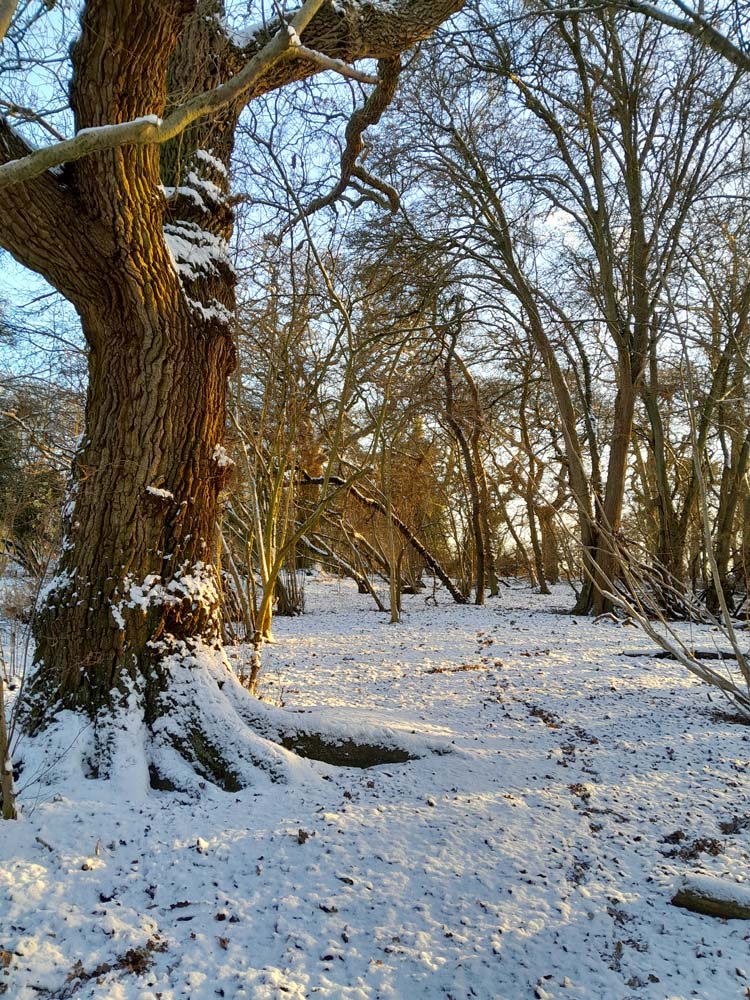
Tracks in the snow
Work party progress
The regular work parties on the third Sunday of the month have been making great progress over the winter. We very rarely have to cancel work parties due to the weather but the rain was too much for us in February. Thanks to Neil for braving the storm. Over the winter we have opened up two rides, allowing much more light to reach the ground, promoting the diversity of wild flowers in these paths between the scrub blocks. We have coppiced more of the hawthorn in an area on the northern edge, where the previous coppicing had left quite a few taller trees that were closing over and blocking the light from the ground.
Wild Child club
We planned an ink-making project, which is still ongoing. Taking recipes from historical sources, we gathered oak galls of two sorts, marble galls and knobber galls. Crushing them up and leaving them to soak for a fortnight, they produced the expected dark brown liquid. The next stage of adding the sulphate of iron and gum arabic needs a bit more research into technique, but quill pens were enthusiastically wielded and partial documents produced. We will be perfecting this whole process in due course. It was interesting to see the strength of the colour created by the tannin in the galls.
The younger children were excited to find a collection of bones that had emerged from the stream, maybe brought to the surface by recent floods. They were fascinated to see how the bones of a deer foreleg fitted together.
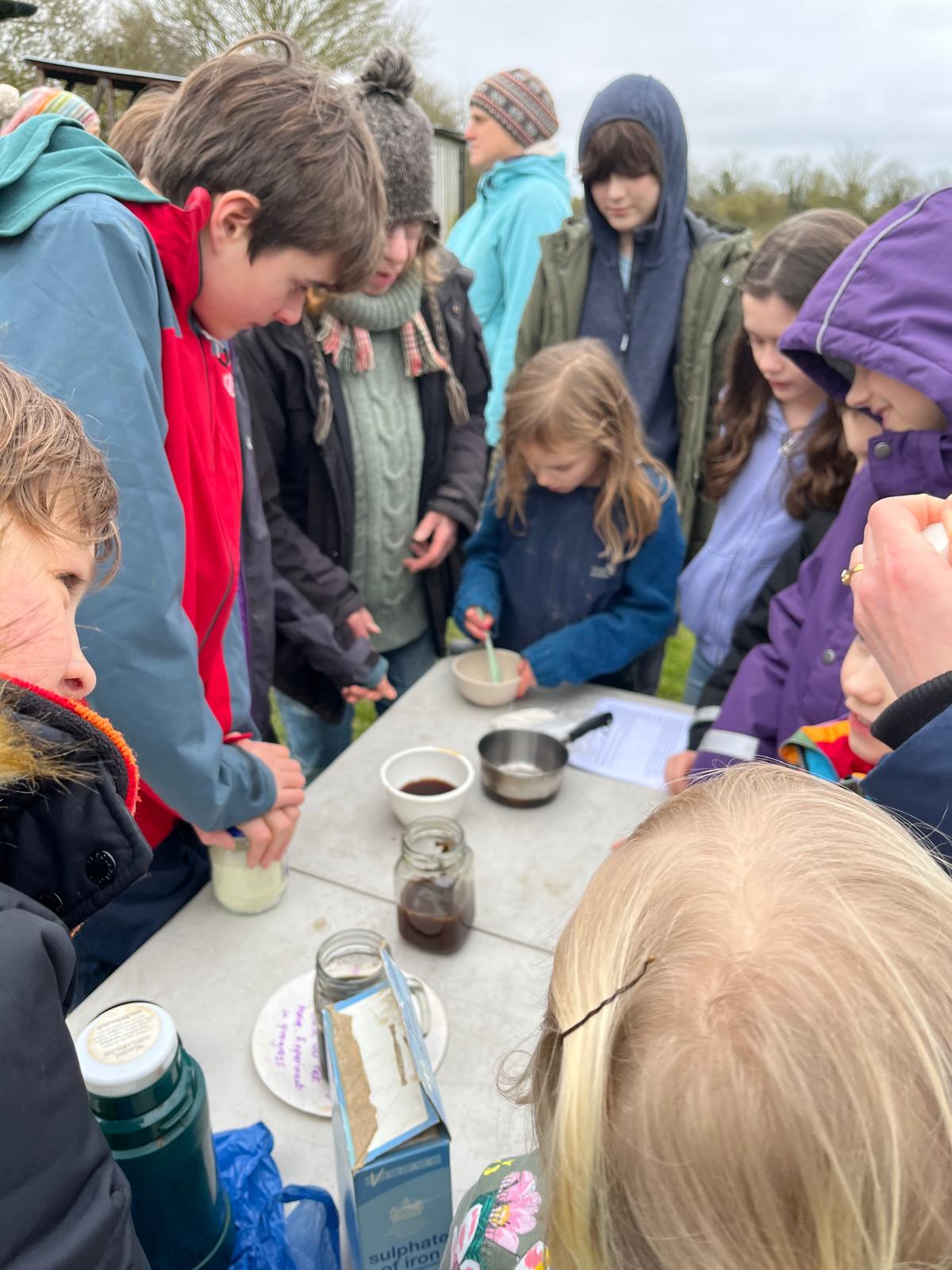
Making oak gall ink 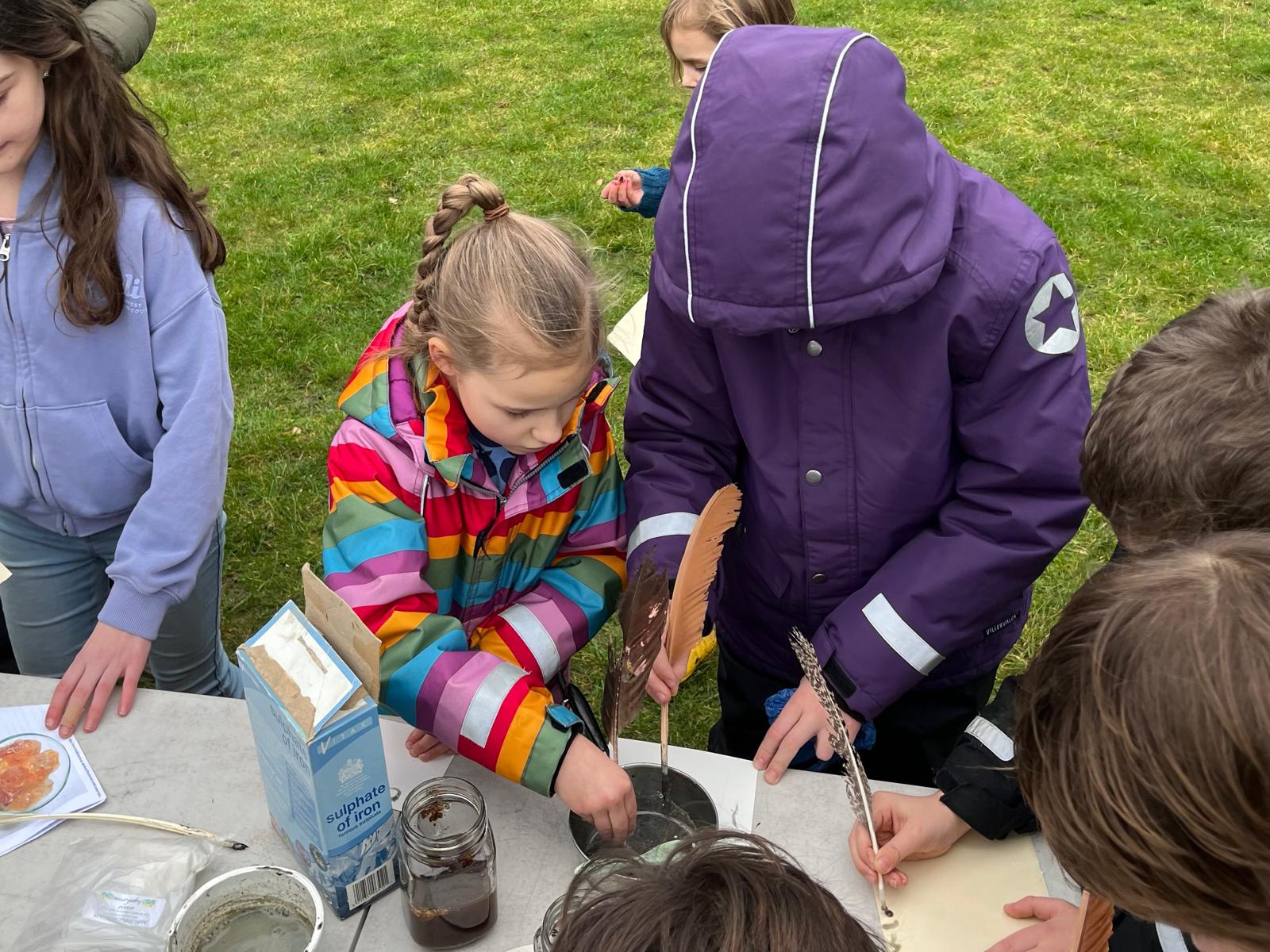
Trying the oak gall ink
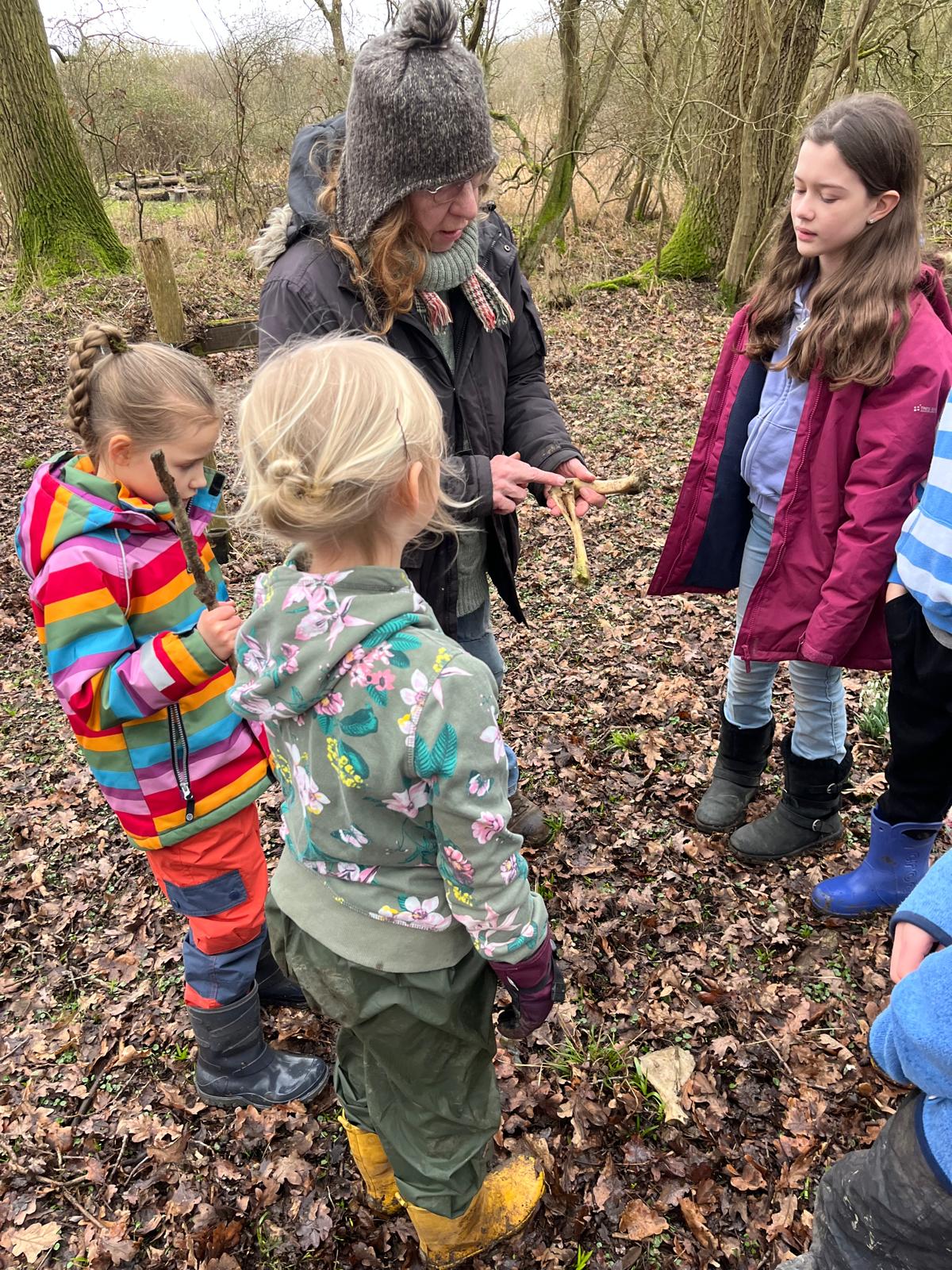
Bones washed up by the stream
Kings Field
The Bumpstead Brook is in full spate at the moment, swirling under the bridges in a mighty rush. Later in the year, we will be investigating it to see if any of the fish have returned. Meanwhile the pond is satisfactorily full, so let’s hope it entices a good number of frogs.
We were delighted to spot molehills just on the bit of grass and hedge where we park the cars. Noakes Grove should be jealous as that is a species so far unrecorded there. 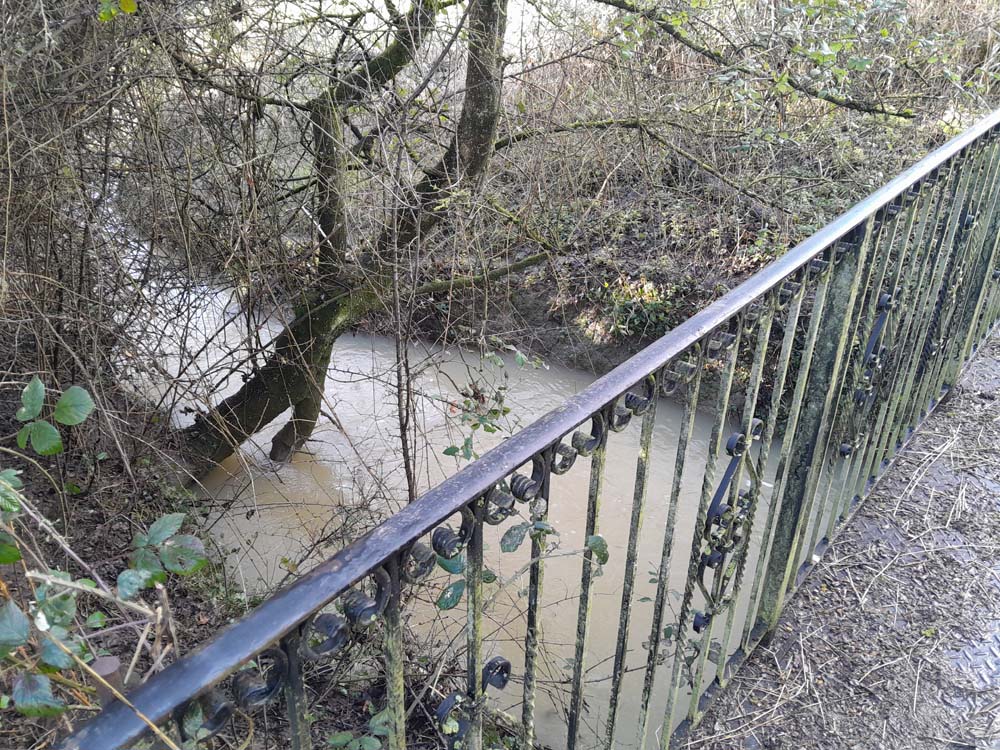
Bumpstead Brook
SheepBreeding flock
The sheep team at King’s Field have done a truly magnificent job of managing the sheep for the benefit of both the meadows and the animals. Mud and lack of grass always prove to be problems in such wet weather, but the sheep have been moved from area to area before long-term damage has been done. It is still very wet though, so we might have to bring the pregnant ewes back to Noakes Grove earlier in March than we thought; the new lambs are expected at the beginning of April, and we hope there will still be some grass left by then.
Of course, we do have to be mindful of the danger of wishing the rain to stop. We must have done that last year after the very wet February, because it did stop – and it didn’t start again till the autumn! Such a drought is also bad for wild flowers.
Six of our beautiful ewe lambs are now enjoying a new life as part of a flock in Tring. Two friendly little (castrated) boys are still to be sold, while one exceedingly tame little ewe lamb will stay with us and you will be able to meet her when she joins the flock at Noakes Grove in March. Her name is Lily.
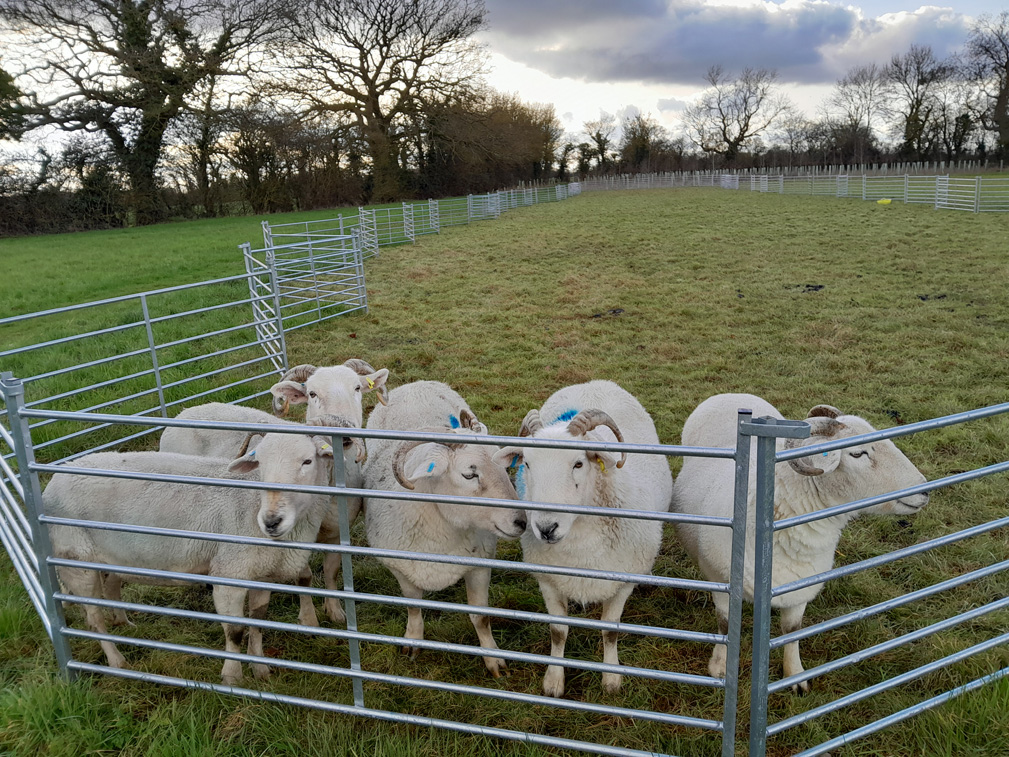
Hurdles are a wonderful way of fencing sheep. Here
are five of our ladies.
Very welcome grant
Many, many thanks to the Stansted Airport Community Fund.
The new hurdle system of fencing the sheep has proved superb, saving hours, even days, of work and allowing us to use other (borrowed) fields when grass gets scarce in the reserves. In the autumn, we applied for a grant to buy more hurdles from the Stansted Airport Community Fund, and to our delight they granted us £800. We now have enough hurdles to fence another area to reduce the stress on the existing meadows. Thank you so much!
Open Day 26 April 2026 10am to 4pm
Our annual open day is back to its April date and is once again the famous ‘Lambs and Bluebells Day’.
Let’s hope the rain will have eased off somewhat by the end of April. Do come and enjoy Noakes Grove in all its spring splendour. Lambs and bluebells are just part of the attractions: there will be music, campfire cooking, refreshments, puppet shows, games and activities for children and more. Next newsletter will have more details.
|